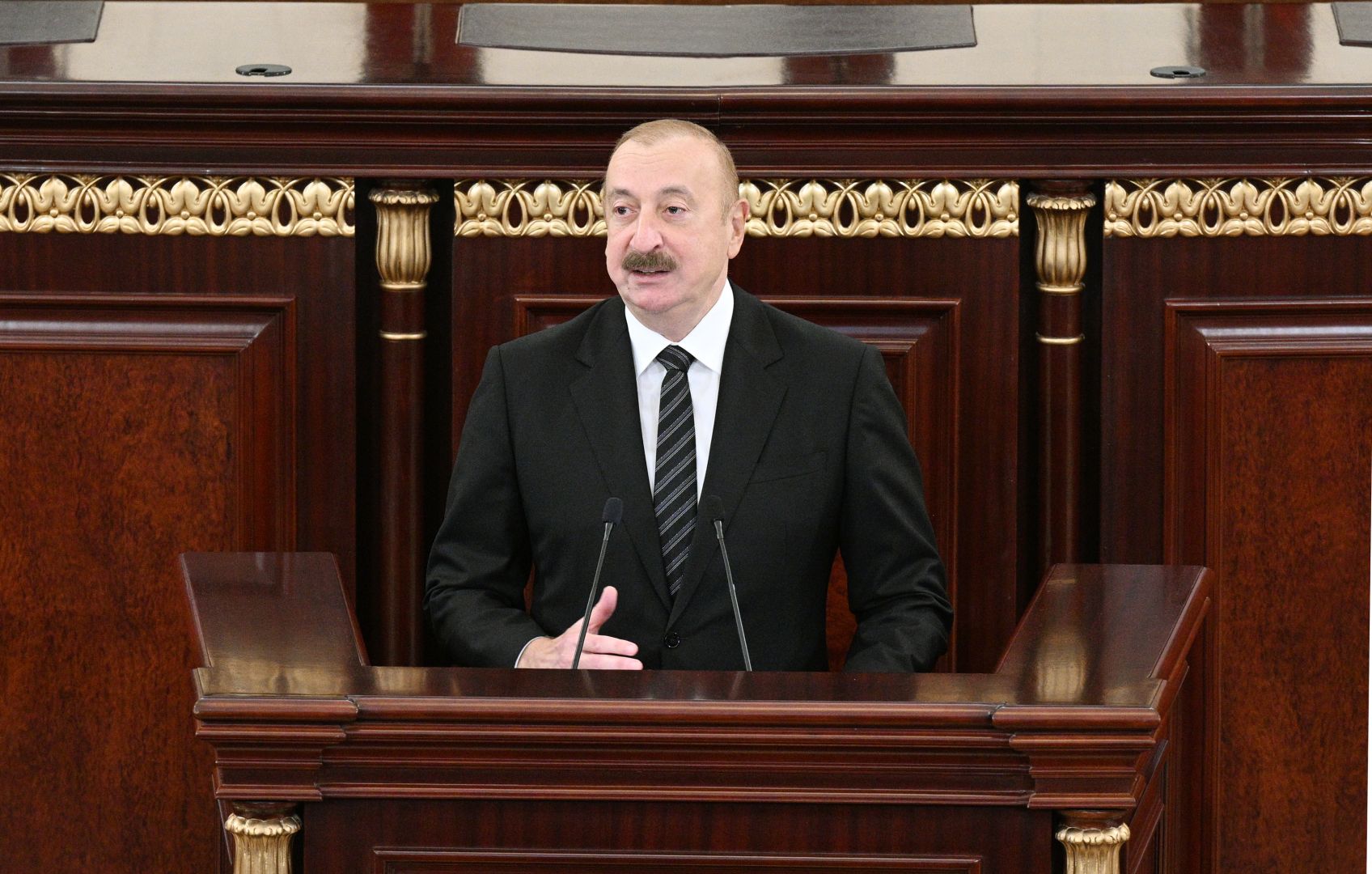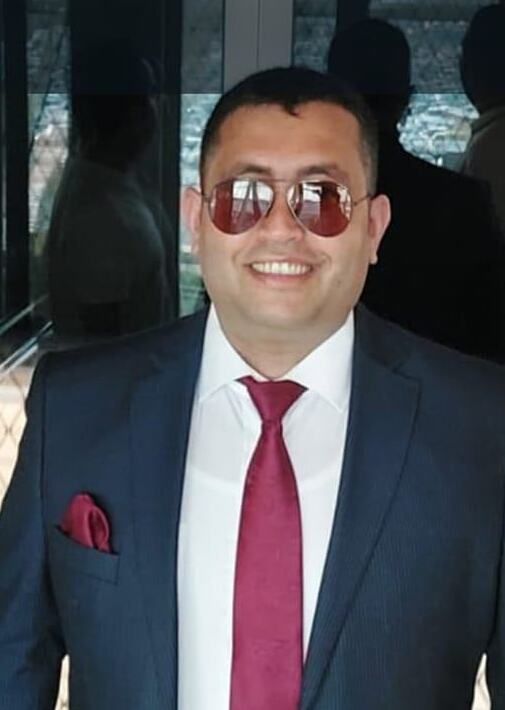President Aliyev reaffirms linguistic sovereignty as pillar of national strength

"Our language is ancient and rich — the mother tongue of over 50 million people — and needs no foreign borrowings. True, there is an international lexicon, and we all use it. But if there is an old word in the Azerbaijani language, why replace it with a word from another language?"
President of Azerbaijan Ilham Aliyev touched upon a very sensitive point while speaking at the conference dedicated to the 80th anniversary of the Azerbaijan National Academy of Sciences. This point, in fact, subtly reflects the depth of our language, its historical essence, and our national identity.
Every nation lives through its language. Language is not merely a means of communication; it is the very essence of a people’s identity, their collective memory, and their soul. If a nation’s language dies, the nation itself inevitably fades from history, no matter how powerful or developed it once was. The fate of the Latins, once the creators of the mighty Roman Empire and the cradle of Western civilisation, is the most vivid reminder of this truth. Their empire’s glory still echoes, but the Latin nation no longer exists.
The Azerbaijani language, however, has withstood the test of time. It is one of the richest and oldest languages of the East, a language that once served as one of the region’s three lingua francas, alongside Persian and Arabic. Despite centuries of struggle against the dominance of these languages, Azerbaijani never disappeared. It remained alive through the pens of great poets such as Fuzuli, Nasimi, and Khagani, who raised Azerbaijani literature to the level of the finest Eastern classics. When one thinks of Eastern literature and culture today, it is impossible to do so without recalling these names — and their works in the Azerbaijani tongue.
Yet history has not always been kind to our language. The 19th century brought calamity when Northern Azerbaijan was occupied by Tsarist Russia. The spread of modernism across the world, coupled with the fall of the Qajar dynasty in Iran, the last Azerbaijani rulers of Southern Azerbaijan, dealt a heavy blow to the language’s natural development. For a while, it seemed as if Azerbaijani would sink into oblivion.
Then came the 1950s — a turning point. For the first time, the Soviet Azerbaijani Constitution recognised Azerbaijani as the state language. This landmark decision, achieved through the tireless efforts of Mirza Ibrahimov and Imam Mustafayev, gave new life to a language that had long been in a coma. However, Moscow was not pleased. In the 1970s, the Soviet centre tried to remove this article from the Constitution. But Azerbaijan’s then-leader, Heydar Aliyev, resisted firmly. His political will and determination forced Moscow to retreat, and as a result, the Azerbaijani language began to flourish once again in schools, in literature, and in the hearts of the people.
Regrettably, the language faced another existential threat decades later; this time, not from Moscow, but from within. In the early years of independence, certain figures who came to power by chance tried to rename the language and even advocated for the removal of specific sounds from the alphabet. These attempts were not mere linguistic proposals; they were efforts to separate the nation from its cultural roots. Once again, it was Heydar Aliyev’s decisive intervention that saved the language. He brought together experts and linguists on national television to debate the issue openly. In those discussions, his deep understanding of linguistics became clear. Those who sought to undermine Azerbaijani identity were left without words before his arguments.
Today, the Azerbaijani language moves forward with the same confidence as the Azerbaijani state itself. Yet, as President Ilham Aliyev has repeatedly reminded, the duty to protect the language never ends. “However, we, the independent Azerbaijani state, are the guardians of the pure and literary Azerbaijani language.”
Indeed, the challenge today is no longer survival, but purity. In a world dominated by globalization and digital communication, languages easily fall prey to unnecessary foreign borrowings. President Aliyev has warned against this trend, noting that “our literary language in some places is getting lost among Azerbaijanis living in other countries. It is used more as a household language and is full of foreign words. But if we do not protect our language, if we do not keep our language clean and pure, then we can eventually lose it.”
This warning should resonate deeply. The preservation of language purity is not an abstract task for linguists — it is a matter of national identity. The President underscored this truth when he said, “For every nation, the mother tongue is the core of national identity, and all public figures and society as a whole must act in unity to protect it.” In other words, the future of Azerbaijan depends on the collective consciousness of its speakers, writers, scientists, politicians, and ordinary citizens alike.
The richness of Azerbaijani lies not only in its vocabulary but also in its history — a history of survival, of cultural defiance, and of renewal. There is no need, as the President rightly observed, to replace ancient native words with foreign ones. “If there is an old word in the Azerbaijani language, why replace it with a word from another language? This is either a mistake or a provocation. Both are unacceptable.”
Today, the Azerbaijani state, under the leadership of President Ilham Aliyev, continues to strengthen not only its political and economic sovereignty but also its linguistic sovereignty. New schools, universities, and media institutions play a vital role in ensuring that the younger generation speaks and writes in pure Azerbaijani.
Languages, like nations, live only when they evolve yet remain faithful to their roots. The Azerbaijani language, having survived empires, occupations, and ideological pressures, is now entering a new era — one of global presence and national pride. But as history teaches us, survival alone is not enough. The soul of a nation must remain untainted, and that begins with the words we speak.
As President Ilham Aliyev declared, “The preservation of the purity of the Azerbaijani language should be the duty of every Azerbaijani citizen… if we, as a people, as a nation, do not protect our language, our national identity may slowly be undermined.” These words are not merely an appeal; they are a national commandment. For in the end, as long as our language lives, Azerbaijan will live — free, proud, and eternal.
Here we are to serve you with news right now. It does not cost much, but worth your attention.
Choose to support open, independent, quality journalism and subscribe on a monthly basis.
By subscribing to our online newspaper, you can have full digital access to all news, analysis, and much more.
You can also follow AzerNEWS on Twitter @AzerNewsAz or Facebook @AzerNewsNewspaper
Thank you!

